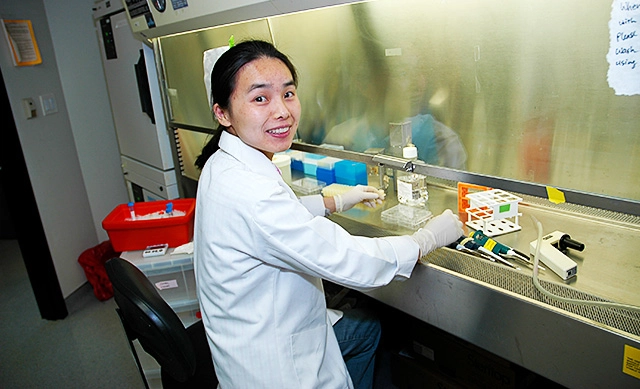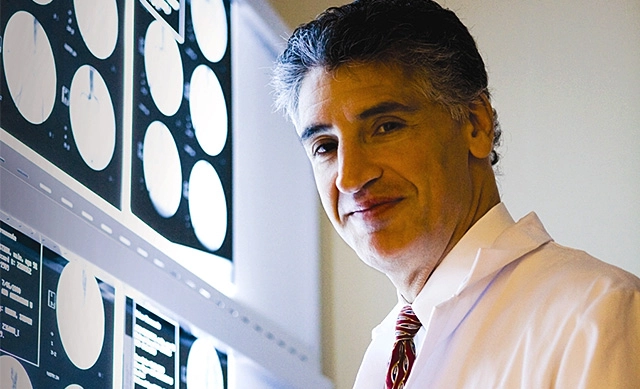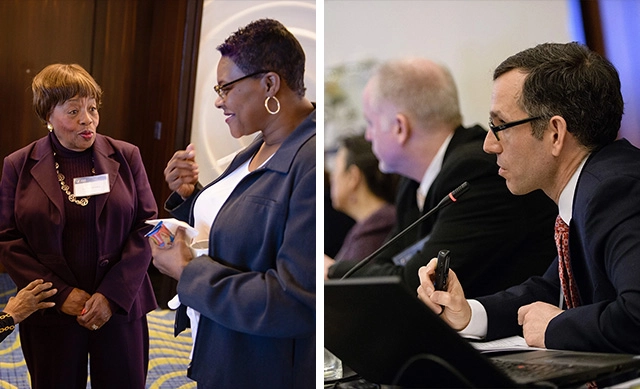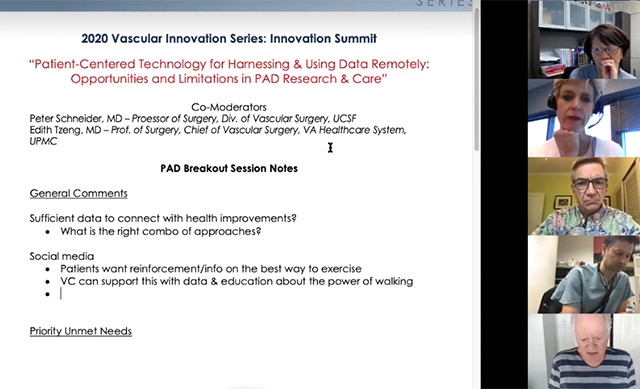40 Years Fighting Vascular Disease
The Foundation to Advance Vascular Cures was founded in 1982 on the vision that prevention will be the ultimate cure. Starting with innovative new research, our mission has expanded to also include patient education & empowerment and unique approaches to improving healthcare through collaboration.
1982
Ronald J. Stoney, MD and William K. Ehrenfeld, MD, vascular surgeons at the University of California, San Francisco, founded the Pacific Vascular Research Foundation, now The Foundation to Advance Vascular Cures, to support research and develop innovative treatment strategies.
1990
Vascular Cures expands to support basic vascular science, focusing on the causes and mechanisms of vascular disease.
1996
The Wylie Scholar Program launches, awarding research grants to outstanding early career surgeon-scientists. Wylie Scholars have become department chairs and leading surgeon-scientists at academic institutions across North America — and their research is contributing to innovations to improve vascular health.
2000
The Laboratory for Accelerated Vascular Research (LAVR) is founded at UCSF, in conjunction with Vascular Cures. LAVR is a unique collaboration of scientists and physicians to generate new knowledge in vascular biology and device technology. The LAVR was supported by the Wayne & Gladys Valley Foundation.
2006
The Wylie Scholar Program celebrates 10 years of funding research for promising vascular surgeon scientists.
2013
The Vascular Cures Research Network launches. This collaborative research consortium brings world class investigators together to solve the most urgent problems facing patients with vascular disease.
2014
Vascular Cures hosts the first Research & Innovation Summit, bringing together leaders from patient care, research, biopharma & devices, payers, investors and regulatory bodies to develop and pursue collaborative projects.
2015
Project Voice introduces a national patient-centered initiative that leverages the power of digital health to improve outcomes through empowerment in patients with Peripheral Artery Disease (PAD). The program concept came out of the 2014 Summit.
2016
Vascular Cures hosts the Research & Innovation Summit to identify high-priority areas of unmet scientific need that could have a rapid impact on vascular health.
The Project Voice feasibility study launches to evaluate the feasibility of the PAD home-based exercise platform.
2017
Vascular Cures funds the first Collaborative Patient-Centered Research (CPCR) Grants to conduct projects that use shared research resources and generate results within 1 – 2 years. Project Voice feasibility research studies with multiple partners evaluate a digital health platform coupled with walking activity tracking for patients with PAD.
2018
The Research & Innovation Summit convenes 51 leaders from 28 institutions to identify unmet scientific needs and brainstorm collaborative projects that will create and leverage research resources from institutions across the US.
2019
The Patient-Reported Outcome Measures in PAD (PROM-PAD) Working Group brings together a multi-disciplinary group of experts, scientists, governmental and industry stakeholders, and patients to improve how patients experience data (e.g. quality of life) is used in research and care.
2020
The Vascular Innovation Summit Series, held virtually due to the COVID pandemic, tackles timely and critical questions that address patient-centric issues in vascular health, with a focus on “Patient-Centered Technology for Harnessing & Using Data Remotely.”
CPCR Grants are awarded to two teams of established clinician-scientists at four leading academic medical centers, supported by a collaborative research laboratory. The research projects are identifying biomarkers to better understand who will respond better (or worse) to treatments and identify new targets for future drugs.
2021
CPCR Grants are awarded to two teams of researchers at five top academic medical centers. The grant funds 1-2-year projects that address the unmet needs related to patient-centered technology for harnessing & using data remotely in PAD and/or CLTI.
The Wylie Program celebrates 25 years of providing career development grants to outstanding young vascular surgeon-scientists who combine active patient care with academic research.
















